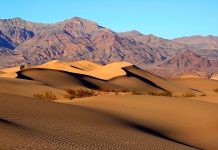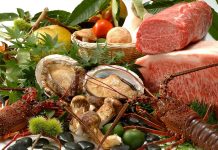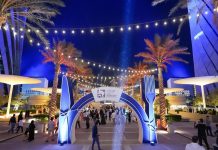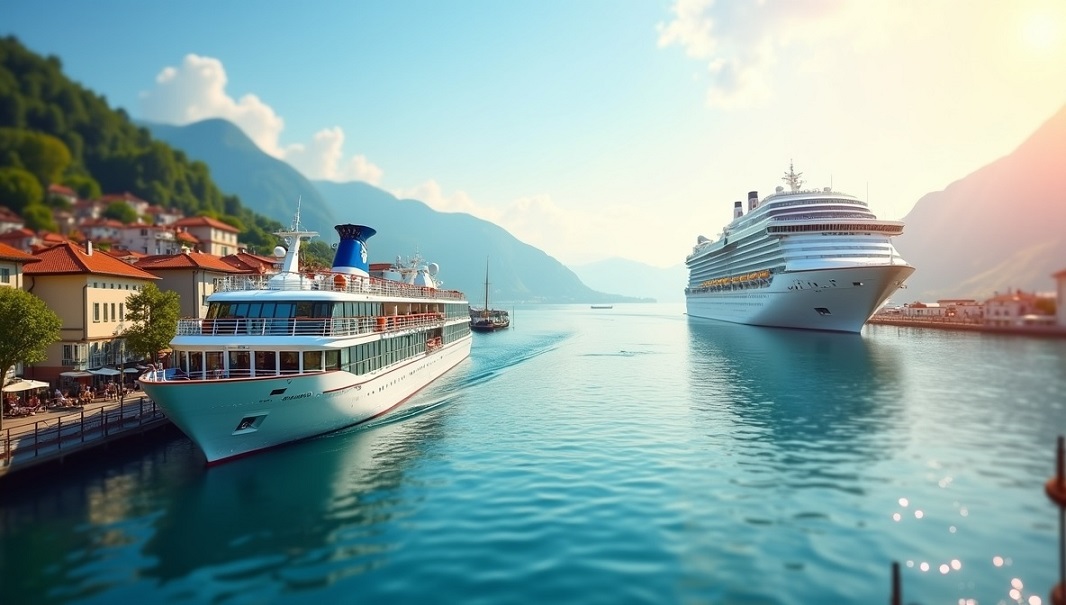
- Water Body Type
- River: Navigates inland waterways (e.g., Yangtze, Danube)
- Ocean: Sails on open seas/oceans (e.g., Atlantic, Pacific)
- Ship Size
- River: Smaller vessels (e.g., 150-200 passengers)
- Ocean: Massive ships (3,000+ passengers)
- Room Size
- River: Compact cabins (often twin beds along walls)
- Ocean: Spacious suites with balconies common
- Scenery Focus
- River: Close-up views of shorelines/cities
- Ocean: Horizon-dominated vistas
- Itinerary Structure
- River: Linear routes between inland ports
- Ocean: Loop or point-to-point oceanic routes
- Port Accessibility
- River: Docks at town centers
- Ocean: Requires tendering/remote terminals
- Motion Sensitivity
- River: Minimal waves (calm waters)
- Ocean: Potential for significant sway
- Entertainment Scale
- River: Intimate shows/bars
- Ocean: Broadway-style productions/casinos
- Dining Options
- River: Local cuisine-focused
- Ocean: Global buffet/24-hour dining
- Excursion Types
- River: Cultural/historical tours
- Ocean: Beach/resort activities
- Navigation Depth
- River: Shallow draft (<15ft)
- Ocean: Deep draft (30ft+)
- Terminology
- River: “Boat” often used
- Ocean: Always “ship”
- Safety Concerns
- River: Minimal currents
- Ocean: Rip currents hazards
- Engineering
- River: Low bridges require folding designs
- Ocean: Fixed superstructures
- Seasonality
- River: Limited by water levels
- Ocean: Year-round sailing
- Environmental Impact
- River: Direct shoreline interaction
- Ocean: Open-water discharge regulations
- Crew Ratio
- River: High staff-to-guest ratio7
- Ocean: Standardized ratios
- Language Requirements
- River: Local language emphasis
- Ocean: English-dominated
- Duration
- River: Typically 7-10 days
- Ocean: 3-14+ day options
- Speed
- River: 10-15 knots max
- Ocean: 20+ knots
- Tide Influence
- River: None
- Ocean: Critical scheduling factor
- Wildlife Viewing
- River: Birds/river mammals
- Ocean: Whales/pelagic species
- Shore Terminology
- River: “Bank” or “shore”
- Ocean: “Coast”
- Water Composition
- River: Freshwater
- Ocean: Saltwater
- Cultural Immersion
- River: Deep local engagement
- Ocean: Cosmopolitan experiences
These distinctions highlight how river cruises prioritize intimacy and cultural access, while ocean cruises emphasize grandeur and variety
















